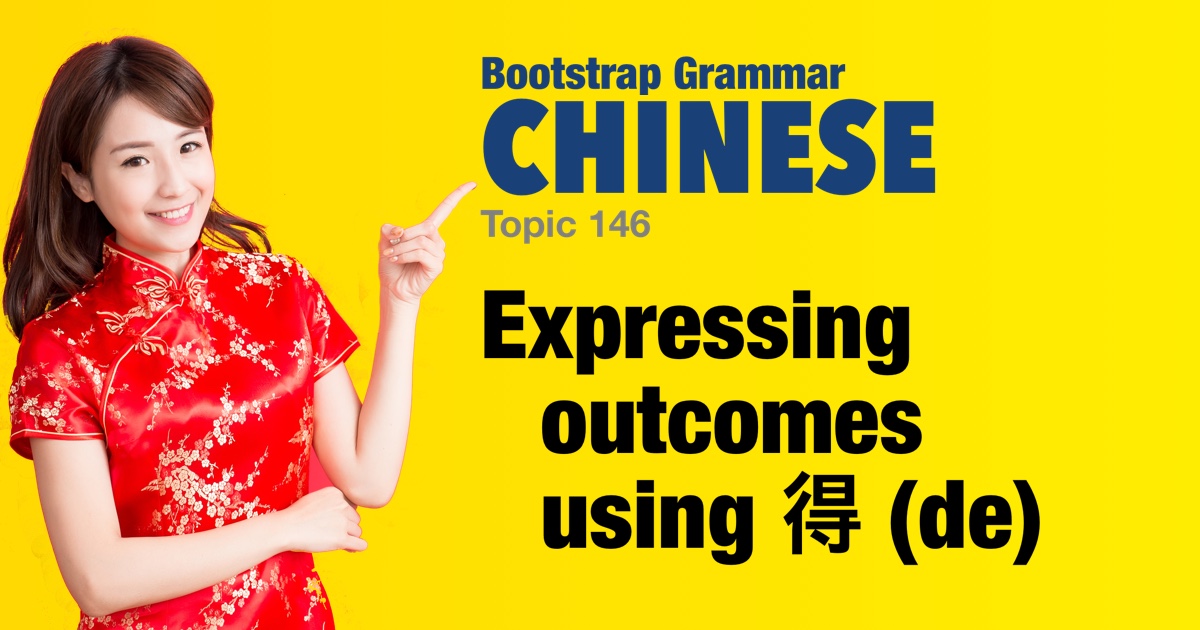Chinese grammar - Expressing outcomes using 得 (de) |
|||
|
|||
In Chinese, when used with an adjective, the modifier 得 (de) can be used to express that a threshold has been reached that causes an resultant outcome. This construction is often used to express how a certain level of emotion or condition leads to a resultant action or state. It is like saying 'It was so… that…'. When used this way 得 comes immediately after the adjective. |
| Examples: | |
|
他累得无法站立。
tā lèi de wúfǎ zhànlì. He is so tired that he cannot stand.
|
|
|
他高兴得跳了起来。
tā gāoxìng de tiào le qǐlái. He was so happy that he jumped up (and down).
|
|
|
她饿得吃了很多。
tā è de chī le hěnduō. She was so hungry that she ate a lot. |
|
|
她累得倒下了。
tā lèi de dǎo xià le. She was so tired that she collapsed.
|
|
|
我笑得肚子疼。
wǒ xiào de dùzi téng. I laughed so hard that my stomach hurt.
|
|
|
他气得脸红了。
tā qì de liǎn hóng le. He was so angry that his face turned red.
|
|
|
她高兴得哭了。
tā gāoxìng de kū le. She was so happy that she cried. |
|
|
她紧张得手抖了。
tā jǐnzhāng de shǒu dǒu le. She was so nervous that her hands were shaking.
|
|
|
他困得睁不开眼睛。
tā kùn de zhēngbùkāi yǎnjing. He was so sleepy that he couldn't open his eyes.
|
|
|
她气得脸红了。
tā qì de liǎn hóng le. She was so angry that her face turned red. |
|
 |
|



